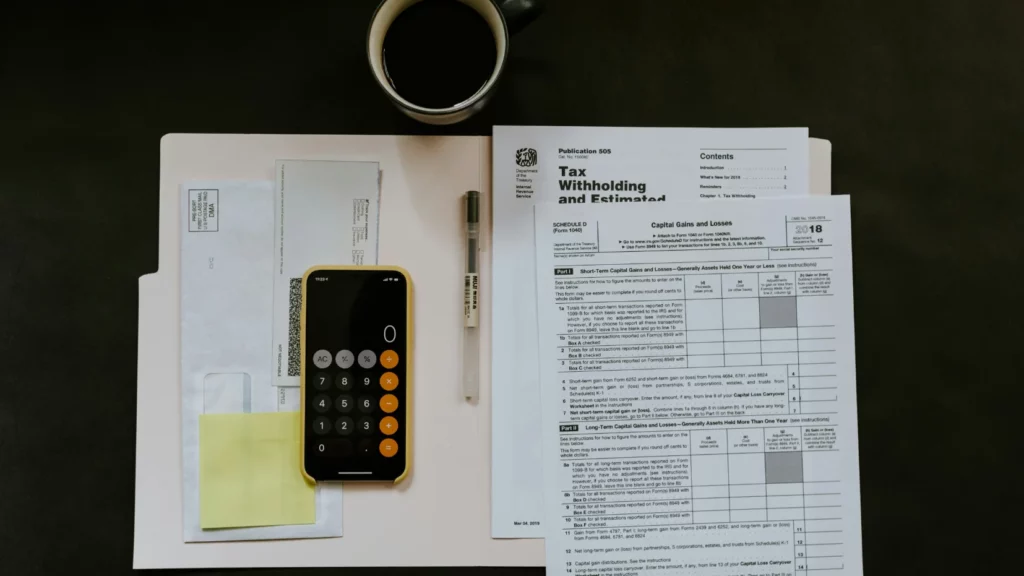
If you’re thinking about selling a rental property, it’s important to understand the tax implications before you list it. Whether you’re cashing in on appreciation or just ready to move on from being a landlord, this guide breaks down what you need to know about capital gains taxes, depreciation recapture, 1031 exchanges, and more.
By being informed, you can avoid surprises and make smart decisions that maximize your profits and minimize your tax burden.
Capital Gains Tax: What It Means for Landlords
When you sell a rental property for more than you paid for it, the profit is called a capital gain. The IRS will tax this gain, and how much you owe depends on how long you’ve owned the property:
- Short-term capital gains (owned for less than a year) are taxed at your ordinary income rate.
- Long-term capital gains (owned for more than a year) are taxed at 0%, 15%, or 20%, depending on your income level.
Long-term capital gains are much more favorable for most landlords, especially those who have held properties for multiple years.
✅ Tip: Most landlords qualify for long-term capital gains rates, which are typically lower than income tax rates. If you’re planning to sell soon, make sure you’ve held the property for more than 12 months to avoid higher short-term rates.
How to Calculate Capital Gains
Your capital gain is generally the difference between your selling price and your adjusted cost basis (what you paid for the property, plus improvements and certain expenses, minus depreciation).
For example:
- Purchase Price: $150,000
- Improvements: $20,000
- Depreciation Taken: $30,000
- Adjusted Basis: $140,000
- Selling Price: $250,000
- Capital Gain: $110,000
This is the amount subject to capital gains tax—though not all of it may be taxed the same way, as we’ll explain below.
Depreciation Recapture: The Hidden Tax
One often-overlooked aspect of selling rental property is depreciation recapture. While you own the rental, the IRS allows you to deduct depreciation—spreading out the cost of the property over 27.5 years (for residential real estate). But when you sell, the IRS wants a portion of that deduction back.
- Recaptured depreciation is taxed at a flat 25% rate.
- This applies even if your total gain qualifies for a lower capital gains rate.
✅ Tip: Work with a tax professional to calculate your total depreciation and estimate your recapture liability. Many landlords forget about this and are surprised at tax time.
1031 Exchange: Defer Taxes by Reinvesting
A 1031 exchange can be one of the best tools to delay paying capital gains and depreciation recapture taxes. It allows landlords to sell one investment property and reinvest the proceeds into another similar property without paying taxes immediately.
What is a 1031 Exchange?
This provision of the tax code allows you to exchange “like-kind” properties—typically, any real estate held for investment purposes. You defer taxes as long as the new property meets certain conditions.
Key 1031 Rules:
- You must identify a replacement property within 45 days.
- You must close on the replacement property within 180 days.
- The new property must be of equal or greater value to fully defer taxes.
- You must use a qualified intermediary to handle the transaction.
✅ Tip: Don’t try to handle a 1031 exchange on your own. One misstep—like missing a deadline or touching the funds—can trigger full taxation.
When Does a 1031 Exchange Make Sense?
A 1031 exchange is ideal if you:
- Want to grow your portfolio by trading up into a larger or more profitable property.
- Are transitioning from active landlording to more passive investments.
- Want to consolidate multiple properties into one.
Can You Avoid Capital Gains Taxes Entirely?
Completely avoiding taxes isn’t easy, but there are some strategies to reduce the burden.
Offset Gains with Losses
If you’ve sold other investments at a loss, you can use those losses to offset capital gains. This strategy is called tax-loss harvesting and is especially useful for landlords with a broader investment portfolio.
Installment Sales
An installment sale allows you to spread the profit out over several years. Instead of receiving the full purchase price upfront, you receive payments over time, reporting gains gradually.
- Reduces the chance of bumping into a higher tax bracket.
- You may also earn interest on the payments.
Convert to a Primary Residence
If you lived in the rental as your primary residence for at least 2 of the last 5 years, you may qualify for the Section 121 exclusion:
- Exclude up to $250,000 in capital gains ($500,000 for married couples).
- You must not have used the exclusion on another property in the last 2 years.
✅ Tip: You’ll still have to pay depreciation recapture on the portion that was used as a rental.
Common Tax Mistakes to Avoid
- Forgetting to account for depreciation. It’s required, even if you didn’t claim it.
- Missing a 1031 deadline. These are hard deadlines with no extensions.
- Failing to track improvements. Renovations and upgrades can increase your cost basis and lower your capital gain.
- Not consulting a tax pro. A CPA with real estate experience can help you save thousands.
Final Thoughts: Talk to a Pro Before You Sell
Selling a rental property can bring in significant profit, but it also comes with tax responsibilities that can catch you off guard. The more you understand the tax rules before you sell, the better prepared you’ll be to make smart decisions that protect your earnings.
Thinking about selling in Tulsa or nearby? Green Country Home Buyers can buy your rental property for cash or even purchase it using owner financing, depending on your needs. We buy properties in any condition—whether they’re vacant, tenant-occupied, or need repairs—and can work with your timeline.
➡️ Contact us today for a free, no-obligation cash offer on your rental property. Let’s talk about how we can help you sell smart and fast—without the stress.
